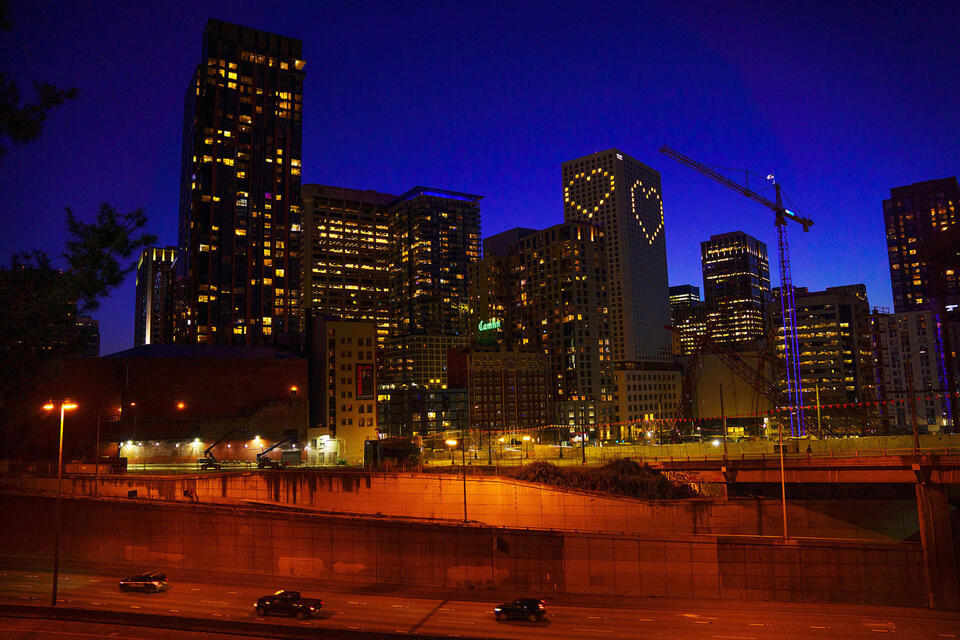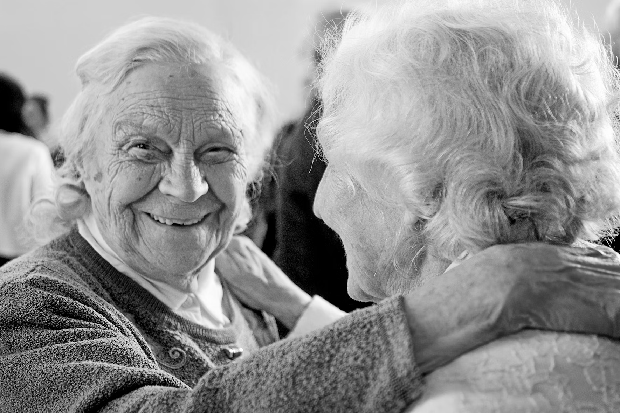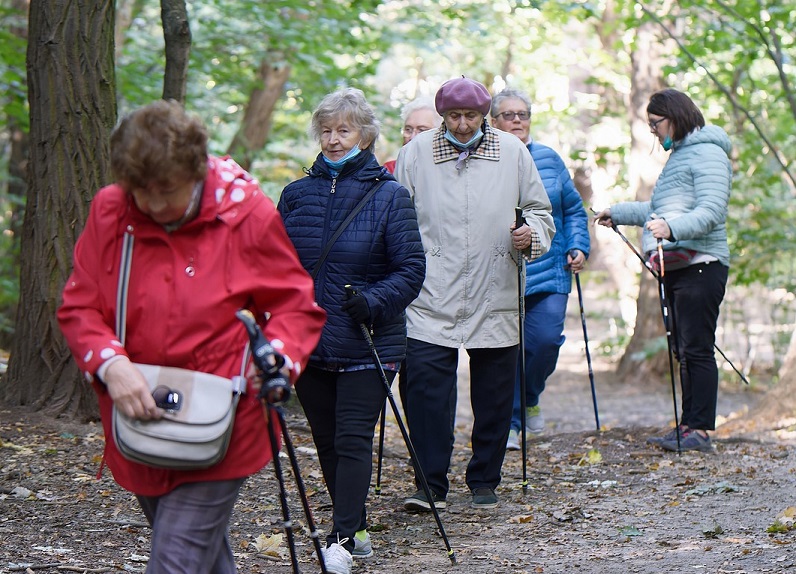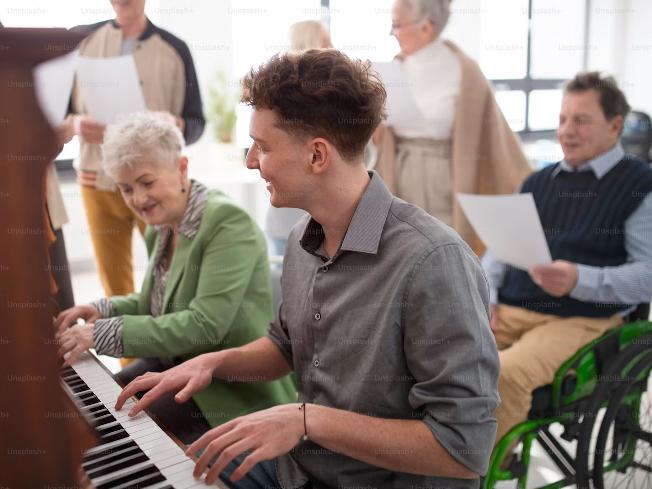As the daylight hours turn short, Puget Sound area residents recommend staying social, getting outdoors and learning to embrace the drear
…by Nate Sanford/CascaePbs.org

The leaves are turning brown. The days are getting shorter. Wet weather is back in the forecast and “atmospheric river” weather patterns are starting to move through Western Washington. The “big dark” has officially arrived.
“We’re definitely transitioning into a fall pattern here,” said Harrison Rademacher, a meteorologist with the National Weather Service in Seattle.
Seattle sits at about 47 degrees latitude, and has one of the most extreme dark seasons in the continental United States.
Cascade PBS’s resident historian Knute Berger said he doesn’t know exactly who first coined the phrase “big dark,” but that the term’s popularity appears relatively recent. In 2017, The Seattle Times attributed the phrase to National Weather Service staff.
Berger said that while the dark tests some people’s patience and psyche, he personally enjoys it. Think of it like dark chocolate vs. milk chocolate, he said.
This year’s big dark may be darker than usual. The National Oceanic and Atmospheric Administration is projecting a La Niña weather pattern, which could cause unusually cool and wet days for the Pacific Northwest. It’s still too soon to say exactly how things will shake out, Rademacher said, but more rainfall is likely.
“It can really vary,” Rademacher said. “Even the weakest of La Niña, they can actually produce a lot more rain than we expect.”
Seattle typically sees about 15.6 inches of rainfall during the winter months, Rademacher said. The rainiest winter on record since 1945 was in 2016, with 24.6 inches. The driest was in 1977, with 5.2 inches.
But Seattle winters aren’t just wet — they can also be crushingly dark.
The sun is currently setting around 6 p.m. On Nov. 3, daylight saving time will end, and clocks will jump backward one hour. By mid-November, the sun will be setting around 4:30 p.m. — before many people get off work.
The next time the sun sets after 7 p.m. won’t be until March 9, 2025, when daylight saving time kicks back in.
The lack of daylight can be hard to bear. Nearly 40% of Americans report an overall mood decline during the winter, according to a poll from the American Psychiatric Association.
As rainy skies and short days return, we asked people in Seattle what tips they have for making it through.

Stay social
On a brisk and overcast October morning, Leah Rector was setting up a table in the University of Washington’s Red Square to sell flowers for the school’s figure skating team.
Rector, who is from Washington and a sophomore at UW, thinks staying social is key to making it through the long winters.
“I would say just hanging out with people and making sure to spend time with them,” Rector said.
Rector said she has friends who’ve found that lightbox therapy can also be helpful. Lightboxes mimic outdoor light, and are often used to treat seasonal affective disorder, a form of seasonal depression known as SAD. The Mayo Clinic recommends that people consult a health care provider before starting lightbox therapy.

Learn to embrace it
Ken Ruther is a lifelong Washingtonian. As the retiree handed out Bibles on the UW campus, Ruther said he prefers summers, but has learned to embrace the state’s long winters as well. His advice for getting through the big dark? Learn to enjoy it.
“You can’t let the gray skies get to you,” he said. “We have some of the most beautiful summers, so it’s worth the wait. Just learn to enjoy the rain.”
Ruther, who lives in Eatonville, said he’s also found vitamin D capsules to be helpful.
“It is harder for some people from sunnier parts of the country that come here. They can get a little depressed,” Ruther said. “But I think here in Washington, you load up on your vitamin D and just bear through it … especially this side of the mountain, most everybody’s low on vitamin D.”

Get outside
Jim Anderson, a lifelong Seattle resident, recommends staying active and walking in parks during the winter. He’s especially fond of Seattle’s Green Lake Park.
“You just ease into the season,” Anderson said as he walked around the lake with a friend earlier this month. “If it’s raining I just walk with an umbrella.”
The leaves are especially gorgeous this time of year, Anderson added.
“I like to walk first thing in the morning,” Anderson said. “Now that fall is here, it’s dark out. But if you walk the perimeter, then you have the street lighting and you have a lit path all the way around.”
When daylight saving time ends on Nov. 3, sunrises will jump from just before 8 a.m. back to before 7 a.m.
Some Washington lawmakers think it’s time to “ditch the switch.” In 2019, the Legislature passed a law to make daylight saving time permanent year-round — which would lead to darker mornings and more sunlight in the late afternoons. But the law can’t actually go into effect without approval from Congress, which hasn’t shown interest in doing so.
A bill to switch Washington to year-round Pacific Standard Time, which does not require federal approval, failed to advance during this year’s session.

Stay busy
As he waited for a ride to a construction job earlier this month, Ovi Christea, a Kent resident, had one piece of advice for the long winters: “Stay busy. Do something. Work on something. Be productive,” Christea said. “Don’t get scared of the darkness.”
For visitors from other places, Seattle’s gloomy weather is sometimes an attraction.
“I came for the gray, to be honest,” said Matt Gahm, a Philadelphia resident who recently visited Seattle. “I like the gloom because it makes you appreciate the sunshine.”
Gahm said he was hoping to catch some cloudy skies in Olympic National Park during his trip.
“That’s where I thrive,” Gahm said. “It’s a lot cleaner over here, the air feels better.”
Visit cascadepbs.org/donate to support nonprofit, freely distributed, local journalism

















